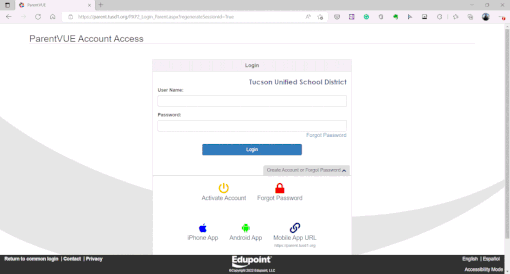For Parents
What is conference period?
Conference period is part of the school day. Students are expected to be on campus and in classrooms meeting with teachers. This is a time to get extra help, tutoring, discuss grades, or meet with their teachers for any other reason. This is also a time where parents can meet with teachers.
What is Badger Power Hour?
Badger Power Hour is for recovery and enrichment. BPH is for students to make up tests, make up assignments, and work on anything to bring up their grades. Students who are failing a class should go to that class for BPH. They will need a BPH pass. Students who are passing all of their class will have different activities depending on the class.
Conference period is part of the school day. Students are expected to be on campus and in classrooms meeting with teachers. This is a time to get extra help, tutoring, discuss grades, or meet with their teachers for any other reason. This is also a time where parents can meet with teachers.
What is Badger Power Hour?
Badger Power Hour is for recovery and enrichment. BPH is for students to make up tests, make up assignments, and work on anything to bring up their grades. Students who are failing a class should go to that class for BPH. They will need a BPH pass. Students who are passing all of their class will have different activities depending on the class.

Parents can check their child's progress through ParentVUE and Canvas. Though ParentVUE does allow for communication, only ClassDojo allows for direct messaging. Clicking on your student's class will allow you to see their assignments.

If you have an Android or iPhone you can download the ClassDojo app. You will receive an invitation the second week of school.
Electronic devices are not allowed to be used during class time.
Electronic device usage is one of the biggest obstacles to student achievement. When students are focused on their phones, they are not doing their assignments. Cell phone usage is becoming such a problem it is being described as an addiction. Despite what students believe, research is showing that students are NOT able to multitask and cell phones do interfere with learning.
Electronic device usage is one of the biggest obstacles to student achievement. When students are focused on their phones, they are not doing their assignments. Cell phone usage is becoming such a problem it is being described as an addiction. Despite what students believe, research is showing that students are NOT able to multitask and cell phones do interfere with learning.
"Participants in three different study groups (control, low-distraction, and high-distraction) watched a video lecture, took notes on that lecture, and took two learning assessments after watching the lecture. Students who were not using their mobile phones wrote down 62% more information in their notes, took more detailed notes, were able to recall more detailed information from the lecture, and scored a full letter grade and a half higher on a multiple choice test than those students who were actively using their mobile phones."
"They reasoned that when students engage in multiple simultaneous tasks, like texting and listening to lectures, one or both behaviors suffer. each of these studies concluded that texting can diminish learning because students’ attention is divided, Thus, in the case of texting/posting, students’ attention can be divided, which can distract attention from on-task behavior. In turn, information processed in working/short-term memory may be incomplete or inaccurate, which could lead to inaccurate or insufficient storage of information in long-term memory."
Kuznekoff, Jeffrey H., and Scott Titsworth. "The Impact of Mobile Phone Usage on Student
Learning." Communication Education 62.3 (2013): 233-52. Print.
"They reasoned that when students engage in multiple simultaneous tasks, like texting and listening to lectures, one or both behaviors suffer. each of these studies concluded that texting can diminish learning because students’ attention is divided, Thus, in the case of texting/posting, students’ attention can be divided, which can distract attention from on-task behavior. In turn, information processed in working/short-term memory may be incomplete or inaccurate, which could lead to inaccurate or insufficient storage of information in long-term memory."
Kuznekoff, Jeffrey H., and Scott Titsworth. "The Impact of Mobile Phone Usage on Student
Learning." Communication Education 62.3 (2013): 233-52. Print.
Recent research shows that students lose skills over extended breaks.
1. Most students lose about two months of grade level equivalency in mathematical computation skills over the summer months.
2. Parents consistently cite summer as the most difficult time to ensure that their children have productive things to do (Duffett et al. 2004)
3. Low-income students lose more than two months in reading achievement, more than other income groups (Cooper, 1996)
4. Summer learning loss is NOT correlated to race, IQ or gender (Cooper, 1996)
5. About two-thirds of the ninth-grade achievement gap between lower and higher income youth can be explained by unequal access to summer learning opportunities during the elementary school years (Alexander et al. 2007).
Both winter break and summer break come up fast. The National Summer Learning Association provides research briefs that can help parents with plans to prevent "brain drain."
1. Most students lose about two months of grade level equivalency in mathematical computation skills over the summer months.
2. Parents consistently cite summer as the most difficult time to ensure that their children have productive things to do (Duffett et al. 2004)
3. Low-income students lose more than two months in reading achievement, more than other income groups (Cooper, 1996)
4. Summer learning loss is NOT correlated to race, IQ or gender (Cooper, 1996)
5. About two-thirds of the ninth-grade achievement gap between lower and higher income youth can be explained by unequal access to summer learning opportunities during the elementary school years (Alexander et al. 2007).
Both winter break and summer break come up fast. The National Summer Learning Association provides research briefs that can help parents with plans to prevent "brain drain."
